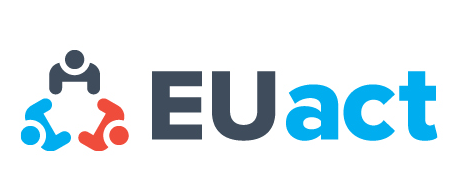Policy Recommendations and Takeaways: EUact Project 1st Transnational Reflection Group Meeting of European Young Leaders

What Europe do we want? How do we get there? Recently, 36 young European leaders and experts met in Bratislava to engage in a direct policy process by drafting recommendations for EU and national decisionmakers, as well as business and civic communities. The event was part of “EP Elections and Beyond: Active Participation of Citizens at All Levels,” a co-funded project by the Europe for Citizens Programme, involving partners from Slovakia, Germany, Poland and Bulgaria.
The recommendations provided by the young leaders were shaped by current challenges and future opportunities identified in 5 specific areas:
- Education and youth opportunities
- Environment and sustainability
- EU as a global actor
- Migration, internal and external security
- Employment, social affairs and inclusion
Three key themes emerged in most working groups, regardless of the specific area of discussion. First, special attention was paid to interdisciplinary and intersectoral solutions. As the young leaders saw it, the involvement of various level of expertise from the private and public sectors, different generations and communities, can lead to better and more sustainable solutions in the future.
A second suggestion for increasing coherence across Europe was to concentrate on common threats and challenges as unifiers. Participants stressed the need to work together on areas where all citizens can benefit.
The third common theme was the key importance of good information and knowledge about the EU, a factor that was identified as essential for building a better and stronger Europe.
The meeting was undoubtedly an important first step for young leaders to engage in direct policymaking. Indeed, given that Europe currently finds itself at a crossroad, the active involvement of a new generation in such debates is both timely and urgent.
The European Commission support for the production of this publication does not constitute an endorsement of the contents which reflects the views only of the authors, and the Commission cannot be held responsible for any use which may be made of the information contained therein.
